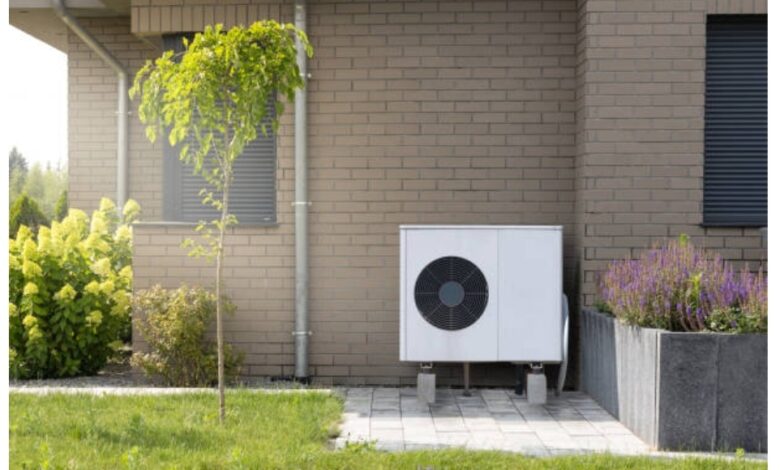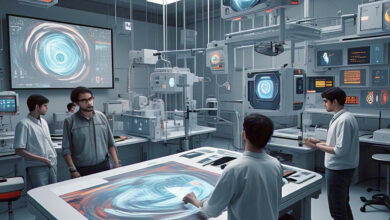How to Choose the Best Hot Water Heat Pump System for Your Needs

Selecting the right hot water heat pump system can create a large difference in the efficiency of energy, costs of utility bills and impact on the environment. Heat pump systems are gaining more and more popularity among consumers because they allow for efficient and environmentally friendly heating. Since there are numerous systems available it helps to know how to choose the best one depending on your situation. This guide looks at the various considerations that a consumer should make to ensure they select the right hot water heat pump and emphasizes the need to deal with the right makers of heat pumps.
Learning About Hot Water Heat Pump Mechanisms
Hot water heat pumps are one efficient means of heating water than the commonly used water heaters. Unlike conventional systems that use gas or electricity generated sources to generate heat for use by domestic equipment, these systems use heat found in air, water or in the ground to heat water. This process runs in a refrigeration cycle to abstract heat from a source, to increase the pressure and the temperature and discharge the heat in a water storage tank. Recent innovations from key players within the heat pump industry mean that these systems can operate in colder conditions. Current heat pumps are also able to utilize renewable energy, including solar energy, therefore making them even more efficient. Stand-alone or in conjunction with ducted heat pumps they offer a renewable, cost effective solution for any residence. Peculiarities of these systems include low reliance on fossil fuels and low emissions of greenhouse gases, thus, it is a perfect option for environmentally conscious people and families.
Benefits and Key Factors
The use of hot water heat pumps has multiple advantages which enhance them to become suitable for modern homes. Product utilization of the system is between two and threefold of the normal water heating system, thus saving more energy and less utility bills. Civilian construction means lower the emission of greenhouse gases compared to traditional designs hence a green solution for housing owners. Flexible and robust, with their useful lives frequently over 15 years, they are a cost-saving measure. The smart functions also applying those systems have additional features like programming the temperature via thermostat, control over the system by a remote, and many more energy-saving modes for use of the system. Moreover, HE heat pumps also entail little maintenance over conventional water heaters while also proving beneficial to homeowner convenience.
Depending on the size of your household and the required quantity of hot water you need to choose the system correctly. The overall capacity of a system is higher for largest families as compared to small families. Temperature however, has a bearing when it comes to models that can optimize low temperatures. Seek COP and Energy star number to it that the cost of operating the building will not be high. Another consideration is sound, and the extent of positioning options, especially in a relatively compact house. Also, there is a set of requirements that must be checked to ensure seamless integration into your home space. Last but not the least, heat pump makers are desirable so that you will be able to avail high quality and efficient products with particular warranties and splendid customer services.
Comparing Ducted and Standalone Heat Pump Systems
The difference between choosing between ducted and standalone heat pump systems is in the structure of the house and its framework. A ducted heat pump installation is most suitable for a home that already has ducts already installed. They easily fit into a central configuration, offering both heating, cooling and hot water and EVEN installing a standard temperature in all sections. It may be best to select them for centennial or great big households, or if all rooms of the home should be of similar temperature. In addition to the zones, ducted systems enable you to regulate temperatures in different sections of your house, which is helpful concerning energy consumption. They are, however, relatively expensive to install because of the nature of ducting work and should be installed by professionals.
In comparison, standalone heat pumps are used for water heating tasks only. They are simpler to put in, do not need ducts and are appropriate for homes that want a water heater separate from the heating system. SBU’s are small, very efficient, mobile, and can be located within a building or outside if space is available. They are convenient for the families that reside in petite houses, or those who are interested in water heating only. Also they can be installed along with other heating systems and do not interfere with them. They offer energy efficiencies and for any help you can consult the expert heat pump manufacturers to decide which system will suit you best. Both ducted and standalone air condition systems provide their own advantages and specialists recommend one type of air conditioning system depending on the type of home.
Directions on Proper Care and Reaching the Best Potential
Hot water heat pumps need to be checked regularly for it to work at optimal for its life expectancy . Maintenance is another factor which should be done by a professional, because a poorly installed heating system could be ineffective or require constant fix. Regarding ducted heat pump installations, it’s necessary to make sure that ducting work is properly sealed as well as insulated to avoid heat loss. There is daily, monthly and annual maintenance that is done on the system including air filter cleaning, refrigerant level cal and checking on the general wear on the system. Annually scheduled appointments with licensed professionals can prevent possible problems that decrease the system’s durability.
In terms of usage we recommend adjusting it to work during the off-peak electricity time and keep the water temperature settings optimal, ranging from 120°F (50°C). Building automation and programmable thermostatic controls are also helpful for additional saving by providing optimum scheduling control of the operations. Furthermore, do not stress the system with extra units of hot water since this decreases the performance and stresses on system parts. Most manufacturers of heat pumps provide warranty and service contracts to cater for the need of the long run maintenance. By doing so, you’ll have a sure shot at getting hot water for many years and thus making the investment worthwhile.
Conclusion
Choosing the best hot water heat pump system means considering parameters, such as size, efficiency, and suitability to the existing heating system. It is always safe to work directly with reputable heat pump manufacturers in order to obtain what can be referred to as customized heat pumps. Regardless of whether you opt for a ducted system or for a separate air conditioning unit, installation and maintenance play an important role in performance and durability of the machine, respectively . They are energy conserving, eco-friendly systems that can be embraced to lower the bills of the utility and at the same time increase comfort. Thanks to their functions and options to combine with other energy-efficient technologies, hot water heat pumps are an innovative, efficient solution for houses. Contact us today and start using efficient, economical hot water today by installing a new heater for your home!



